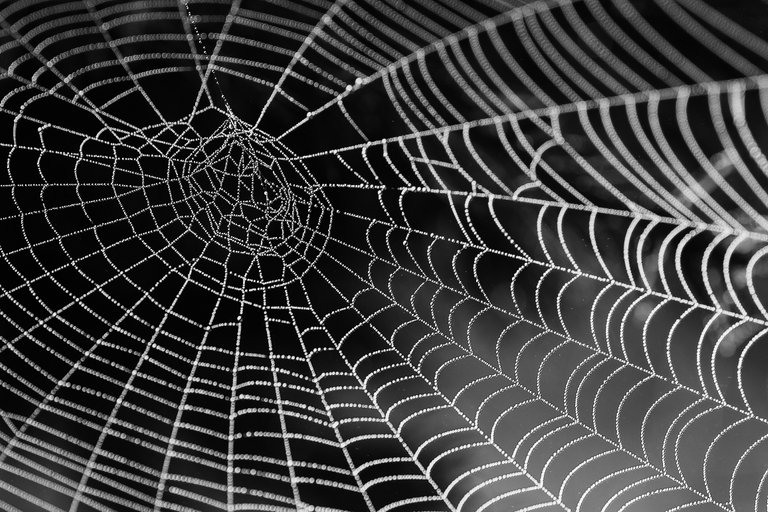Sometimes science has to reach its limits and beyond - even if the researchers have to take a hand in self-experimentation. This is shown by ten experiments that look rather oblique at first glance

III The LSD experiment |
What happens when spiders are drugged? They make useless or very chaotic webs. Shortly after the Second World War, pharmacist Peter Witt intoxicated some eight-legged friends and observed how wrong they made their nets afterwards. For this he used, among others LSD. This drug induces symptoms similar to those of schizophrenia in healthy people on prolonged use. Could it be, the neurologists wondered, that in the body of schizophrenics LSD-like substances are permanently present and excreted in the urine? In a second study, researchers administered some laboratory spiders urine from schizophrenics and healthy people. They wanted to see if and how the urine affects the nets in order to develop a method for the early detection of the disease. But what happened? - nothing. No matter who the urine came from: The spiders built their nets as always.

II The marriage experiment |
Some would call marriage the greatest experiment of life, even though this study by some British psychologists was not based on a classic experiment: they had analyzed thousands of weddings to see if the couples had previously lived together. One of the results: when both partners gave the same address at the wedding, it was likely that they had already shared the apartment before the wedding. Who would have thought that? A more meaningful study by Marret Noordewier at the University of Tilburg in the Netherlands was devoted to the question of what it would mean for women to adopt their spouse's name. They are seen by their environment as more dependent, more emotional, less smart and ambitious - and they therefore earn less. Noordewier has figured out the loss: over working life, a woman who has changed her name gets up to 360,000 euros less. The result is actually staggering - if the data had not been invented, as it later came out.

I The olive oil experiment |
Benjamin Franklin was not only one of the founding fathers of the United States, but also a scientist. One day in 1757, as he crossed from New York to London, he observed that the wake of two ships remained strangely smooth: no wave rippling in the sea. The captain explained: Fatty food particles had been dumped overboard, and the oil had smoothed the waves. Arriving in England, Franklin himself took action: in very windy weather he tipped a spoonful of olive oil into a small pond, which rested quietly. However, when he repeated the attempt in 1773 on the high seas, he was disappointed. Although the whitecaps disappeared, the surf did not weaken. Almost 200 years later Heinrich Hühnerfuss from the University of Hamburg repeated the test in the North Sea - proving that oil can really reduce big waves by a tenth. The reason: oil forms a tough-elastic film on the water that slows down the wind that creates the waves. This prevents small waves from forming, which in turn weakens the larger ones through a chain reaction.

Congratulations @svenjahn! You received a personal award!
Click here to view your Board
Congratulations @svenjahn! You received a personal award!
You can view your badges on your Steem Board and compare to others on the Steem Ranking
Do not miss the last post from @steemitboard:
Vote for @Steemitboard as a witness to get one more award and increased upvotes!